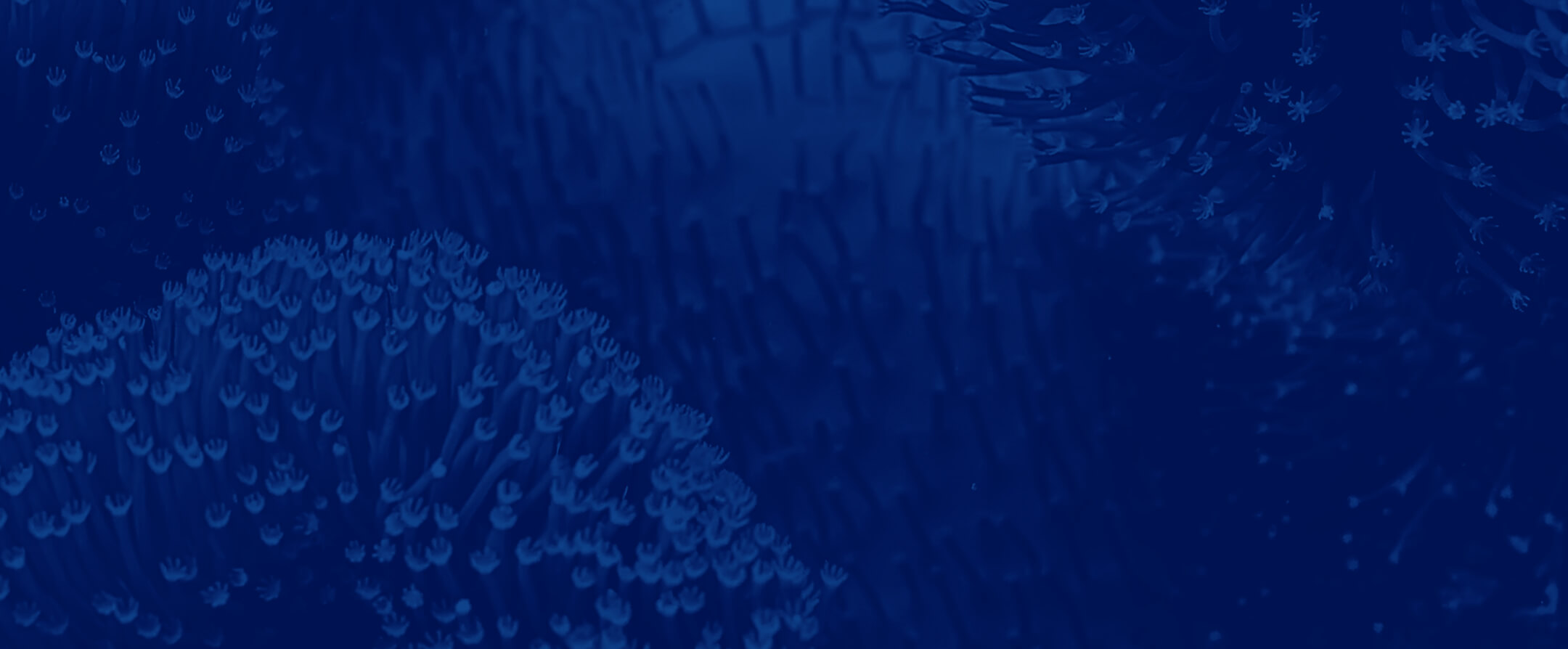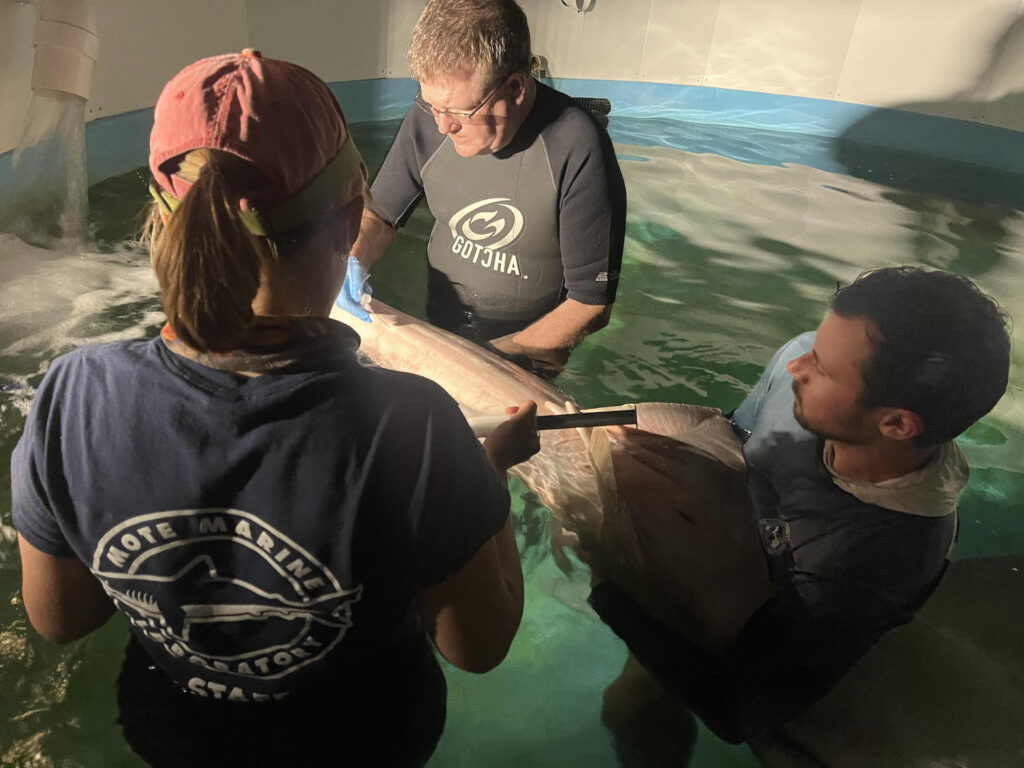The interim holding tank at Mote’s Lower Keys facility gave the team a temporary area where they were able to stabilize the animal. While the animal was successfully rescued and received crucial stabilizing care, it remained in critical condition. After several days of treatment and monitoring, the team decided that the animal appeared capable of withstanding the several-hour drive to another Mote quarantine facility designed to provide more extensive rehabilitation treatment for sawfish.
On Thursday, April 11, 2024, biologists carefully loaded the sawfish into a transport trailer operated by Ripley’s Aquariums. Ripley’s Aquariums Conservation Team monitored the sawfish and water quality conditions throughout the duration of the transport to Mote’s facility.
Now at Mote’s more extensive quarantine facility, the sawfish will continue to be monitored 24-hours a day and treated in hopes of fully rehabilitating its health before releasing it.
“The Mote, NOAA, FWC, and Ripley’s staff exhibited tremendous dedication, compassion, partnership, and skill in providing vital care to this animal in need, and are to be commended for their efforts,” said Dr. Michael P. Crosby, President & CEO of Mote Marine Laboratory & Aquarium. “Without hesitation or any identified source of funding support, Mote remains committed to providing FWC and NOAA with significant ongoing assistance and support of our expert scientists across diverse disciplines, veterinary and animal husbandry staff, along with our significant specialized marine species quarantine facilities for the rescue and rehabilitation of distressed smalltooth sawfish.”
This is an unprecedented partnership initiative that is at the core of Mote’s mission – using the best available science and technology to rescue, restore, and conserve our precious marine species, habitats, and ecosystems.
All the partners involved in this effort (including Havenworth Coastal Conservation and Dynasty Marine LLC, not previously mentioned) are excited about the successful steps to date in rescuing this endangered smalltooth sawfish and look forward to building upon lessons learned from this initial effort.
How can the public assist?
Report all sawfish observations (healthy, sick, injured, or dead) to (844) 4-SAWFISH (844-472-9347) or sawfish@myfwc.com
Report abnormal fish behavior and fish kills to the Florida Fish and Wildlife Conservation Commission’s Fish Kill Hotline at (800) 636-0511 or MyFWC.com/ReportFishKill
How can the public help support the Sawfish Rescue Initiative?
Please go to www.mote.org/sawfish.
History of “Spinning” fish in South Florida
Over the past few months, sightings of “spinning” fish across multiple species have been reported in the Florida Keys. Along with this abnormal behavior, there have also been reports of fish deaths, including 38 smalltooth sawfish to date. There have also been reports of small-scale fish kills in this area.
Scientists do not yet know what is causing the erratic behavior. NOAA Fisheries has initiated an emergency response effort with FWC, Mote Marine Laboratory, and other partners including Havenworth Coastal Conservation, Dynasty Marine Associates, Inc., and Ripley’s Aquariums, to possibly rescue, rehabilitate, and release smalltooth sawfish impacted by this event. Investigations into the abnormal behavior and mortalities by FWC are ongoing.
Mote played an instrumental role over twenty years ago in providing some of the foundational research that led, in part, to the listing of smalltooth sawfish as the first marine fish placed on the Endangered Species List and designation of Critical Habitat. Now, Mote is acting under the guidance of FWC and NOAA Fisheries in this partnership mission.
About Mote
Mote Marine Laboratory & Aquarium has a nearly 70-year legacy as an independent, nonprofit, 501(c)3 global marine research and science education institution. Mote began in 1955 and flourished on the foundational pillars of “Passion, Partnership and Philanthropy” – the passion of a single researcher, Dr. Eugenie Clark, her partnership with the community and philanthropic support, first of the Vanderbilt family, later with the significant support and guidance of the William R. Mote family, and today through donations by thousands of individuals who believe in the mission of Mote.
Today, Mote has grown into eight campuses stretching from Tampa Bay to Key West, with a ninth new campus, the Mote Science Education Aquarium (Mote SEA), currently under construction. Mote has more than 25 diverse world-class research programs studying oceans locally and internationally, with an emphasis on positively impacting conservation and sustainable use of marine resources. The current Mote Aquarium in Sarasota showcases Mote Research and is open from 9:30 a.m. to 5 pm, 365 days a year. Learn more at mote.org.


